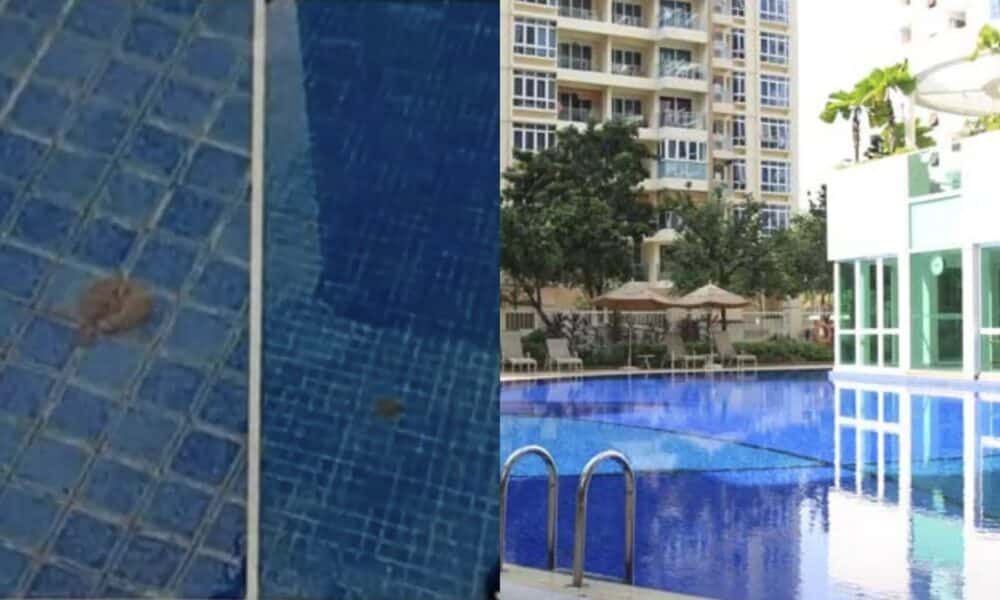SINGAPORE: The swimming pool at Butterworth 8, a condominium in Katong, was abruptly closed by the estate’s management for three days due to an unsanitary and alarming discovery.
On Saturday (8 June), a piece of human feces was found at the bottom of the pool.
In response, the management posted a notice titled “Swimming pool closure due to water treatment,” informing residents of the situation.
The notice was later shared on the Instagram page @sgfollowsal on Sunday (9 June).
The notice detailed the finding of human feces in the main pool and included a photograph of the feces at the bottom of the pool.
Management assured residents that the swimming pool vendor had promptly cleaned and vacuumed the waste material and would be treating the water for three days until further notice.
Management seeks witnesses and apologizes for inconvenience
Additionally, the management appealed to any residents who had witnessed the incident to step forward and help identify the culprit.
“If there is a resident who witnessed the incident and can help identify the culprit, please come forward,” the notice implored.
The estate management apologized for the inconvenience caused and emphasized that all necessary steps were being taken to minimize disruption to residents.
“We apologise for the inconvenience caused and look forward to your cooperation with us,” the statement concluded.
Defecation incidents in pools
According to a 2016 poll by the Sunday Times involving 45 swimmers, parents, and coaches, cases of defecation in pools are rare but not unheard of.
These incidents mostly involve children, who are less able to control themselves, and sometimes feces leaks from their diapers.
Cleaning a pool contaminated with feces is more complex than simply removing the waste.
Freelance pool cleaner Chris Rajoo Jayakrishnan, who has been in the industry for 30 years, stated that a pool must be closed for at least six hours when feces is found.
“We have to add soda ash, chlorine, and acid, which will kill the germs. It takes about an hour, and then we let the water run,” he explained.
The National Environment Agency (NEA) imposes stringent checks to ensure hygiene in public pools.
At least once a month, pool water must be tested by laboratories for chemical and bacteriological quality.
This includes swimming pools, water playgrounds, and spa pools at all non-residential premises.
The agency also conducts spot checks to ensure compliance with regulations. Pool operators can be fined up to $2,000 (US$1,480) for each violation.

